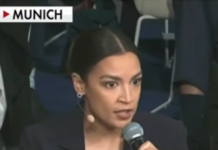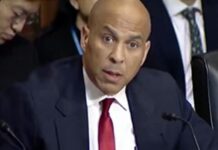President Donald Trump confirmed late Saturday that the United States and China have entered what he calls a “total reset” in trade relations following high-level negotiations in Geneva. Though no official agreement has been signed yet, both sides reported progress and a willingness to continue dialogue.
Over 10 Hours of Talks with Chinese Delegation
U.S. Treasury Secretary Scott Bessent led the American team in meetings with Chinese Vice Premier He Lifeng and other senior officials. Talks lasted more than ten hours, covering tariffs, market access, and longstanding trade imbalances. The Associated Press reports that the discussions were productive and will resume Sunday.
Trump’s Statement: “Great Progress Made”
Posting on Truth Social, Trump stated:
“We want to see, for the good of both China and the U.S., an opening up of China to American business. GREAT PROGRESS MADE!!!”
He described the meeting as “friendly but constructive,” and called it a “total reset negotiated,” reflecting a broader goal of revamping trade rules that, in his view, have disadvantaged the United States for decades.
Context: A High-Stakes Trade Standoff
This round of talks follows Trump’s decision in early April to impose a 145% tariff on Chinese imports, part of a broader push to rebalance the trade relationship. China responded by raising its tariffs on U.S. goods to 125%, heightening tensions that have rattled global markets.
Trump’s administration also announced a temporary 90-day reduction in tariffs for other nations to a 10% baseline, signaling a strategic realignment of global trade policy—with China as the primary target.
Economic Pressure Mounts on China
According to Treasury Secretary Bessent, the tariffs could cost China up to 10 million jobs if maintained. “Even if there is a drop in the tariffs, they could lose 5 million jobs,” Bessent told reporters last month. He emphasized the U.S. trade deficit—$1.2 trillion in 2024—as a justification for maintaining a hardline stance.
China’s economy, already under pressure from a weakened property sector and rising unemployment, has shown signs of vulnerability. Analysts say that may be why Beijing appears more willing to negotiate than in past trade rounds.
What Comes Next
Although the Geneva meetings did not yield a signed agreement, they represent a critical shift. Both sides have agreed to continue discussions, with follow-up talks expected this week. For now, the administration remains committed to its 10% global tariff baseline and plans to monitor China’s response closely.
Whether this “total reset” leads to a comprehensive deal remains to be seen. But as of today, the Trump team sees it as a significant step in resetting global trade—one aligned with the America First doctrine.
Final Thoughts
This isn’t just another trade spat. What happened in Geneva could mark the early stages of a new framework for U.S.-China relations—one that reasserts American leverage and redefines the global economic order. It’s not over yet, but the tone has changed—and that matters.
WE’D LOVE TO HEAR YOUR THOUGHTS! PLEASE COMMENT BELOW.
JIMMY
Find more articles like this at steadfastandloyal.com.
h/t: Steadfast and Loyal



